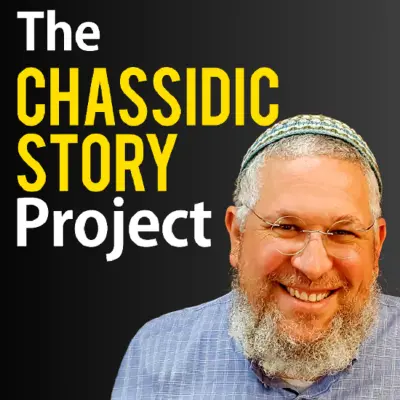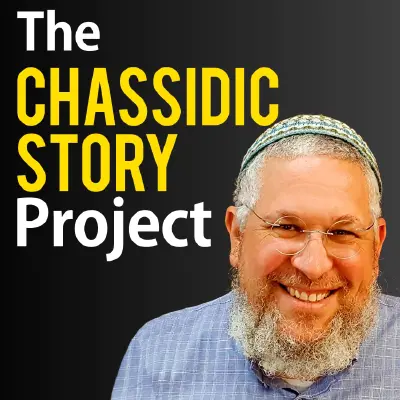Podcasts about Kids & Family
Episodes about Kids & Family

Happy anniversary to us! In this episode of Marriage Bites, we celebrate 13 years of wedded bliss the only way we know how: with a spicy chicken sandwich from Wendy’s, way too many bathing suits, and one pending vasectomy. Jess and Mike catch up on a summer full of chaos, nostalgia, and carbs—including a surprisingly heartfelt drive-thru encounter, snack obsessions, and the ever-evolving saga of parenting two growing kids. Also: why fast food collabs are designed to go viral (not be good), how Slack became the third wheel in our marriage, and a PSA about Yeti lids.

Brennan Manning wrote: “The Father is not concerned about our accomplishments or our failures; he’s concerned about our hearts and wants us back, just as we are.” God wanted the prodigal to come back , and he did. Did yours come home? What’s your story, and the story of your prodigal? Sign up for Dr. […]

In this episode of Myths of Egypt, we uncover the complexity of Set: a god of chaos, but also of protection, strength, and cosmic balance. Feared and revered, Set is the god of storms, deserts, and upheaval who slayed his brother Osiris and battled Horus for Egypt’s throne. So snuggle up in your blankets, and have sweet dreams. The music in this episode is Over the Dunes by Jon Sumner. Text a Story Suggestion (or just say hi!)Support the showNeed more Dreamful? For more info about the show, episodes, and ways to support; check out our website www.dreamfulstories.com Subscribe on Buzzsprout to get bonus episodes in the regular feed & a shout-out in an upcoming episode! Subscribe on Apple Podcasts for bonus episodes at apple.co/dreamful To get bonus episodes synced to your Spotify app & a shout-out in an upcoming episode, subscribe to dreamful.supercast.com You can also support us with ratings, kind words, & sharing this podcast with loved ones. Find us on Facebook at facebook.com/dreamfulpodcast & Instagram @dreamfulpodcast! Dreamful is produced and hosted by Jordan Blair. Edited by Katie Sokolovska. Theme song by Joshua Snodgrass. Cover art by Jordan Blair. ©️ Dreamful LLC

Today’s poem–from British humorist Roger Woddis–is a witty-yet-withering sendup of double-morality. Happy reading. This is a public episode. If you'd like to discuss this with other subscribers or get access to bonus episodes, visit dailypoempod.substack.com/subscribe


Jul 09, 2025
232: Abandoned Pet Reptiles: A Hidden Crisis and How to Fix It | Jordan Lyndon - AAH
Animals at Home Network ❭
Jordan Lindon of Midland Reptile Rescue in Birmingham, UK discusses his experience in running his reptile rescue, the finances involved, the importance of a strong community, and the operations day-to-day. This episode is a great one to tune into if you are someone with aspirations to run a reptile rescue; this truly goes over Jordan’s experience and viewpoints in the function of a reptile rescue in the community. Jordan also talks about mistakes to avoid, legislation viewpoints, species he sees frequently surrendered, and his set-up from taking in surrenders to adopting out. SHOW NOTES: https://www.animalsathomenetwork.com/232-midlands-reptile-rescue/SPONSORS: Visit The BioDude: https://www.thebiodude.com/ Visit Zoo Med Labs here: https://zoomed.com/JOIN US ON PATREON: https://www.patreon.com/animalsathomeLINKS FROM THE EPISODE:Midland Reptile Rescue Facebook: https://www.facebook.com/birminghamreptilerescue/Midland Reptile Rescue TikTok: https://www.tiktok.com/@midlandsreptilerescueMidland Reptile Rescue Instagram: https://www.instagram.com/midlandsreptilerescue/Photos and Video in Episode:https://www.instagram.com/midlandsreptilerescue/WE DISCUSS:00:00 Introducing Jordan Lindon - Midland Reptile Rescue2:38 Coming Up: Zoo Med ReptiTemp Dimming Thermometer3:10 Coming Up: The Bio Dude Bioactive Substrates + Dietary Supplements3:45 Welcome Jordan + Motivations To Start a Reptile Rescue and Expenses8:27 Demand For The Reptile Rescue + Looking For Homes12:25 Home Set-Up of The Rescue + Finances15:24 The Wrong Side Of Rescues + Legislation17:35 Memorable Surrenders19:38 Legislation in Banning Reptiles + Large Snakes21:26 How Many Species Does Jordan Have Now + First Aid in Reptiles23:21 How Do Animals Get Adopted Out?24:31 Zoo Med ReptiTemp Dimming Thermometer26:02 Rescues Being a Safety Net29:42 Tips in Starting a Reptile Rescue32:08 Care Resources + Strange Species34:28 The Bio Dude Bioactive Substrates + Dietary Supplements35:28 Jordan’s Personal Animals37:45 Transitioning Homes For Reptiles40:44 Jordan’s Feelings On Pet Shops, Breeders, and Expos46:24 Abandoned Reptiles Experiences48:06 Commonly Surrendered Species49:24 Plans For Youtube Channel/Social Media + Profits53:16 Goals in Rescuing + Education Services54:47 Major Mistakes to Avoid + Quarantining57:18 The Importance of Rescues59:19 Closing Thoughts

Jul 09, 2025
Shema is Yisrael (Stories for Yud Bes and Yud Gimmel Tammuz)
The Chassidic Story Project with Barak Hullman - A Chassidic Story Every Week ❭
This week I have two stories for you for Yud Bes and Yud Gimmel Tammuz. The first is about Rabbi Yosef Yitzchak as a young man being sent to avert a decree against the Jewish community and the second a story told by the Friediker Rebbe about a simple chassid of his grandfather, the Rebbe Reb Shmuel.
If you're enjoying these Chassidic stories, please take a quick moment to buy me a coffee. https://ko-fi.com/barakhullman Thank you! I deeply appreciate your support!
Also available at https://soundcloud.com/barak-hullman/shema-is-yisrael.
To become a part of this project or sponsor an episode please go to https://hasidicstory.com/be-a-supporter.
Hear all of the stories at https://hasidicstory.com.
Go here to hear my other podcast https://jewishpeopleideas.com or https://soundcloud.com/jewishpeopleideas.
Find my books, Figure It Out When You Get There: A Memoir of Stories About Living Life First and Watching How Everything Falls Into Place and A Shtikel Sholom: A Student, His Mentor and Their Unconventional Conversations on Amazon by going to https://bit.ly/barakhullman.
My classes in Breslov Chassidus, Likutey Moharan, can be found here https://www.youtube.com/@barakhullman/videos
I also have a YouTube channel of ceramics which can be found here: https://www.youtube.com/@thejerusalempotter

Today we're talking about midlife hobbies and interests! What happens once we hit midlife? Join us as we share how our hobbies and interests have changed and what we see in our future! Links in this episode Holderness family reel I'm a fan recommendations Mindy's marinade Julie's tea infuser basket Marie's lamp shade We'd love to hear from you! Find us here: Instagram: Midlife Matters Podcast Website: midlifematterspodcast.com Email: midlifematterspodcast@gmail.com

Jul 09, 2025
EBB 364 - How to Prevent and Heal Birthworker Burnout with Doctoral Student Ihotu Ali and Grace Flannery, Certified Professional Midwife
Evidence Based Birth® ❭
Licensed community midwife Grace Flannery and doctoral student Ihotu Ali, founder of the Oshun Center for Intercultural Healing, join Dr. Rebecca Dekker for a moving conversation about burnout, boundaries, and building sustainable birth work. Together, they explore the root causes of burnout in maternity care, from systemic extraction to internalized pressure, and how the path to healing lies in slowing down, reconnecting with purpose, and redefining productivity. Ihotu and Grace share the origin of their collaboration through the Sweetwater Alliance, the transformative “One Main Thing” meditation, and their four-part framework for reclaiming balance: Seasons, Smallify, Support, and Spirit. This episode is a heartfelt invitation to anyone holding space for others while feeling the weight of burnout. (04:27) Grace and Ihotu’s Birth Work Journey (07:54) The Roots of Burnout in Maternity Care (13:19) Presence, Boundaries, and the Burnout Cycle (18:33) Symptoms and Signs of Burnout (27:06) The “Four S’s” Framework for Sustainable Practice (30:08) Accountability, Rest, and Seasonal Rhythms (38:21) The “One Main Thing” Meditation Practice (44:28) Reconnecting with Purpose and Capacity (58:51) Final Reflections on Slowing Down and Healing To sign up for the EBB Summer Series, visit ebbirth.com/summer! Resources Learn more about the Oshun Center: oshuncenter.com Follow Ihotu on Instagram: @ihotuali Learn more about Trillium Midwifery Care: trilliummidwives.com Follow Grace on Instagram: @midwifegracef For a full list of resources, including links to the free One Main Thing Meditation, visit ebbirth.com. For more information about Evidence Based Birth® and a crash course on evidence based care, visit www.ebbirth.com. Follow us on Instagram and YouTube! Ready to learn more? Grab an EBB Podcast Listening Guide or read Dr. Dekker's book, "Babies Are Not Pizzas: They're Born, Not Delivered!" If you want to get involved at EBB, join our Professional membership (scholarship options available) and get on the wait list for our EBB Instructor program. Find an EBB Instructor here, and click here to learn more about the EBB Childbirth Class.


